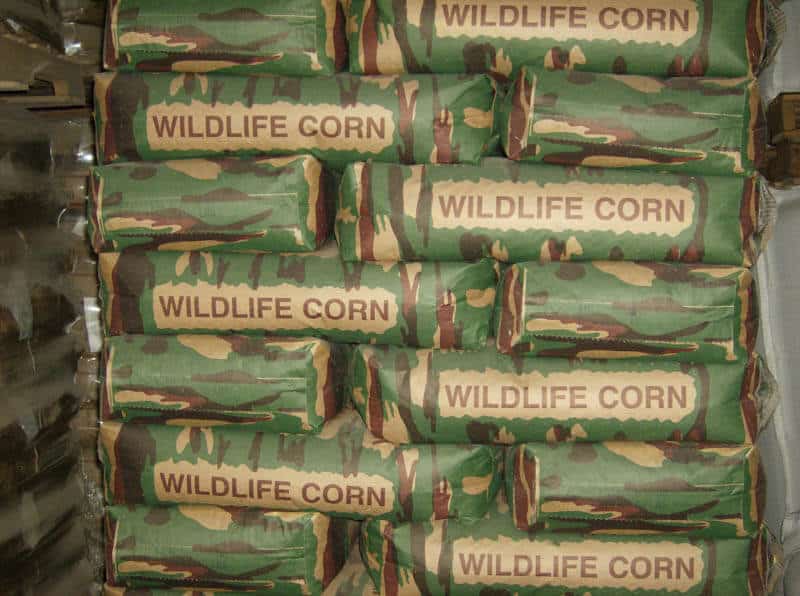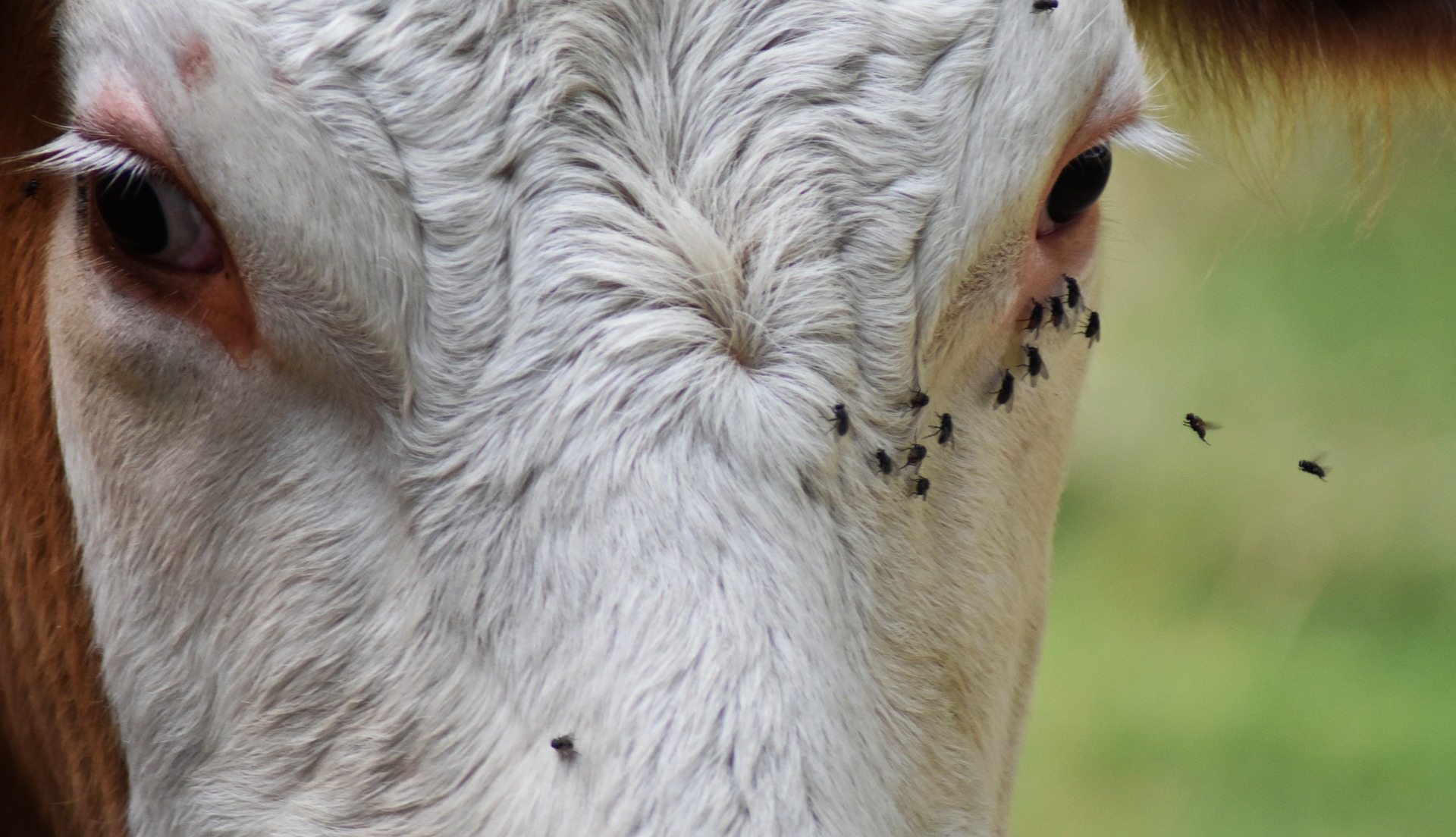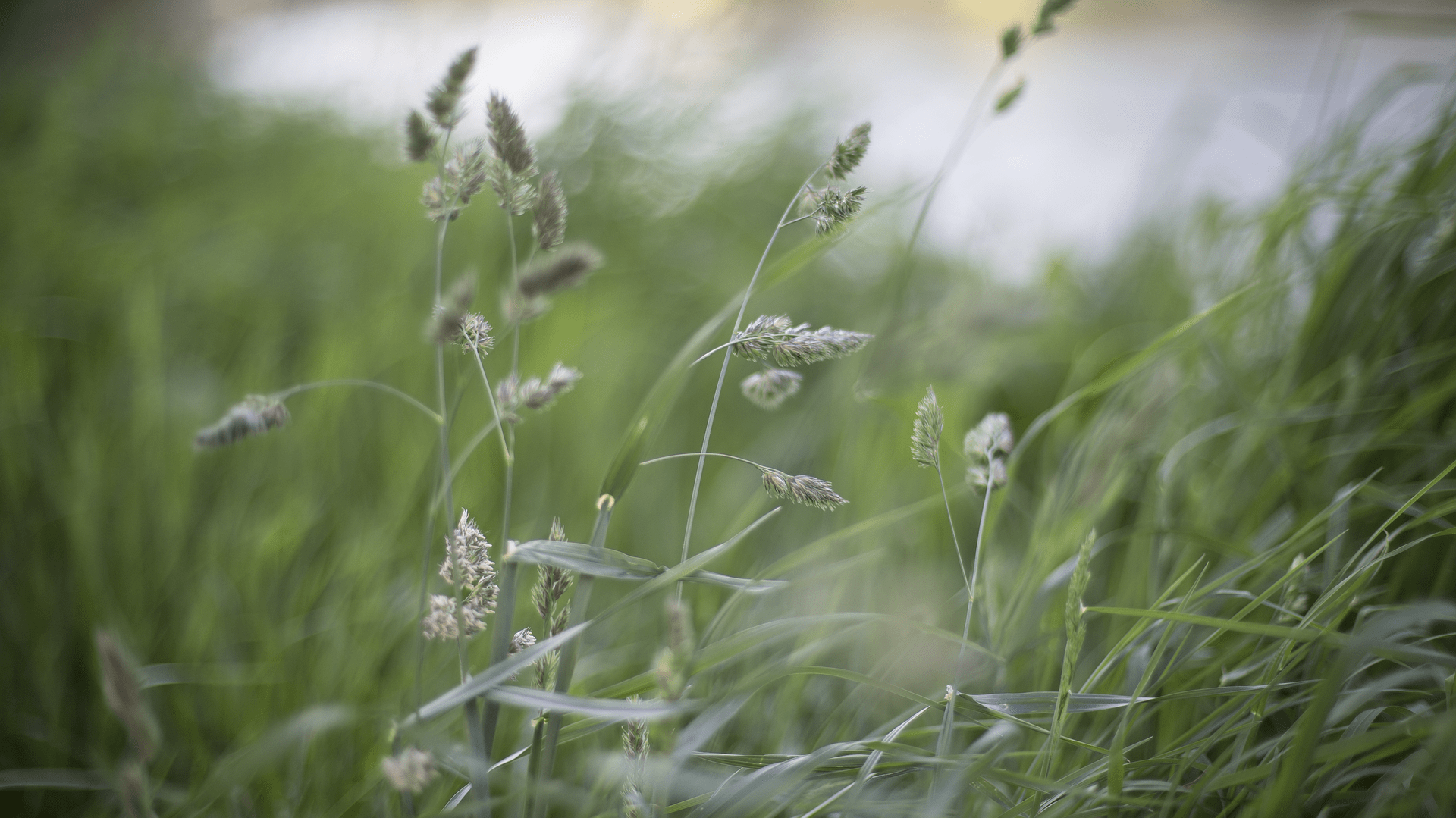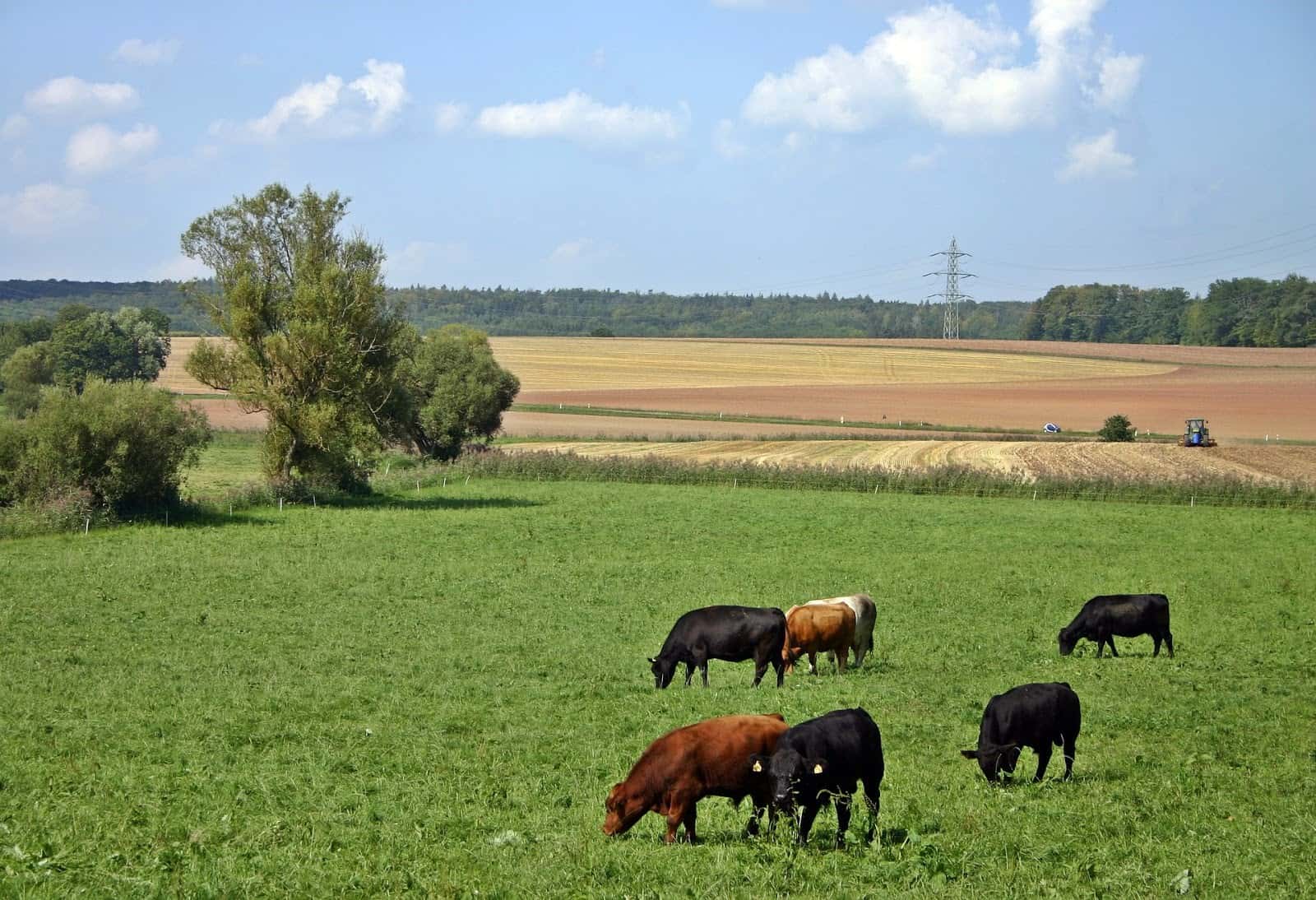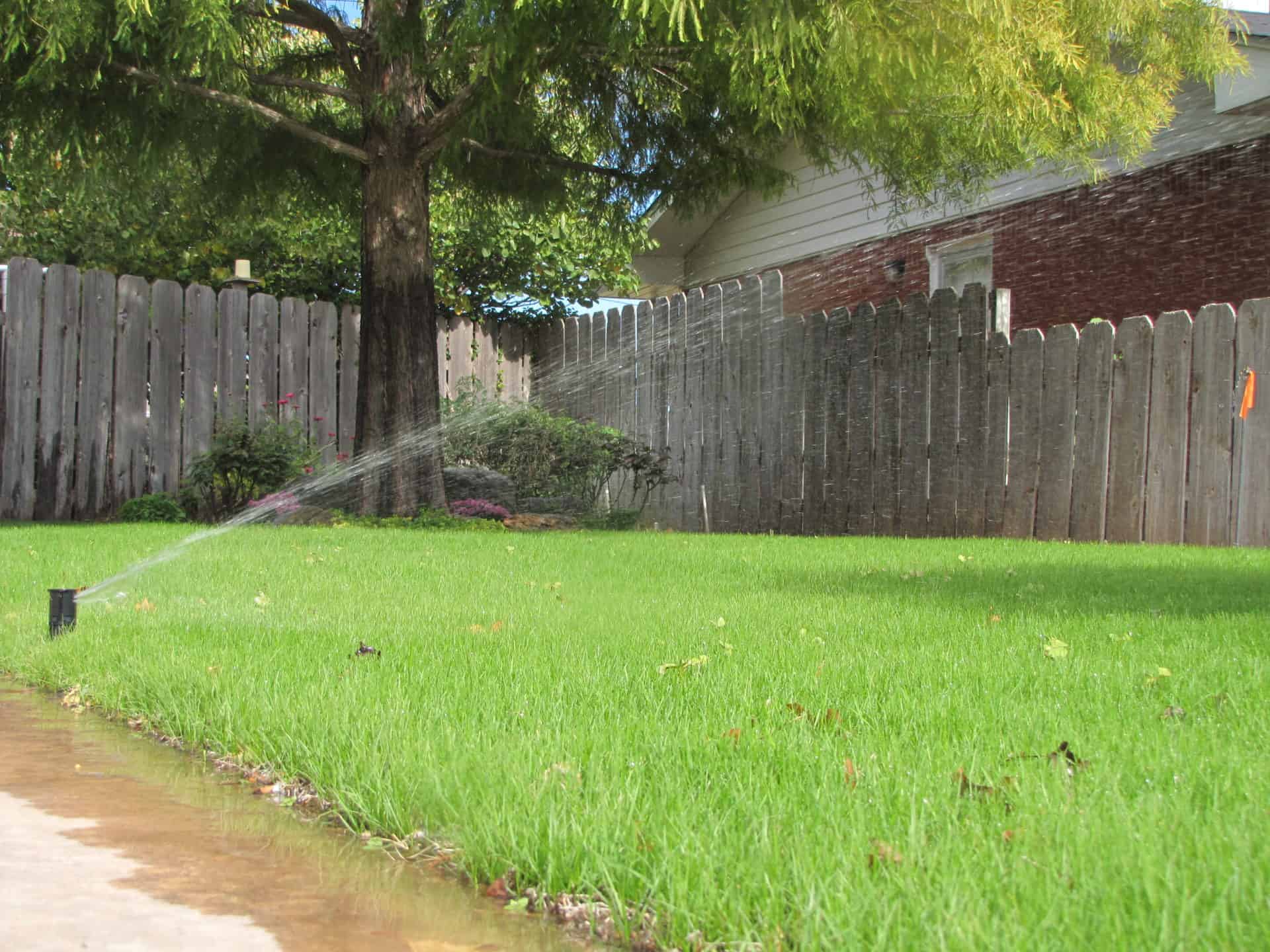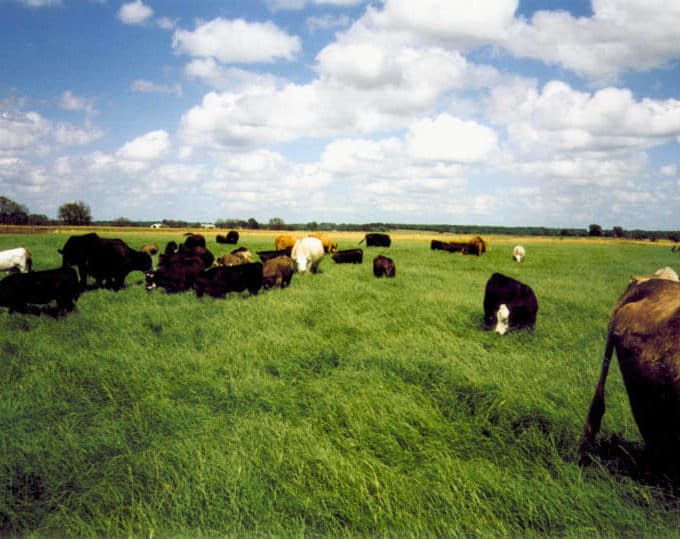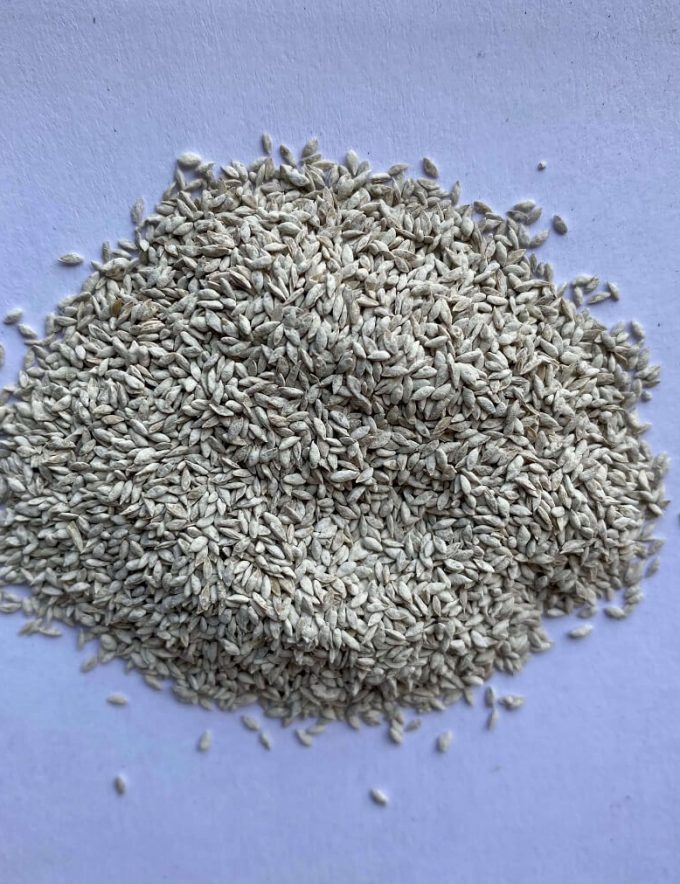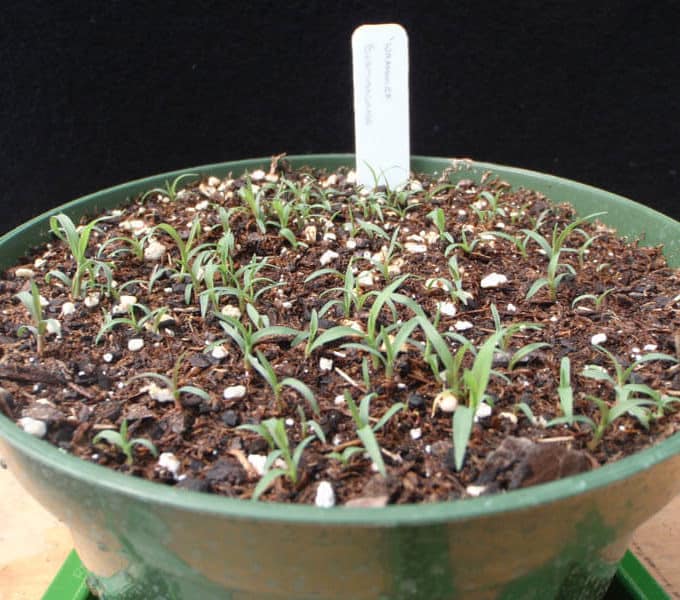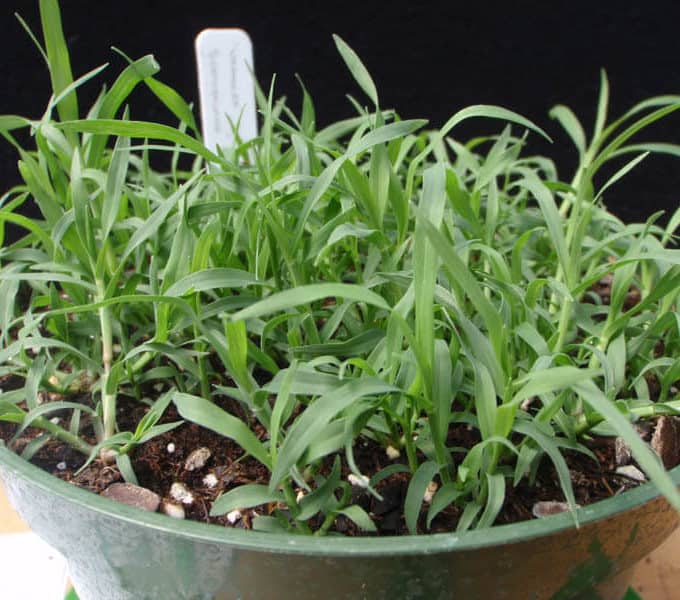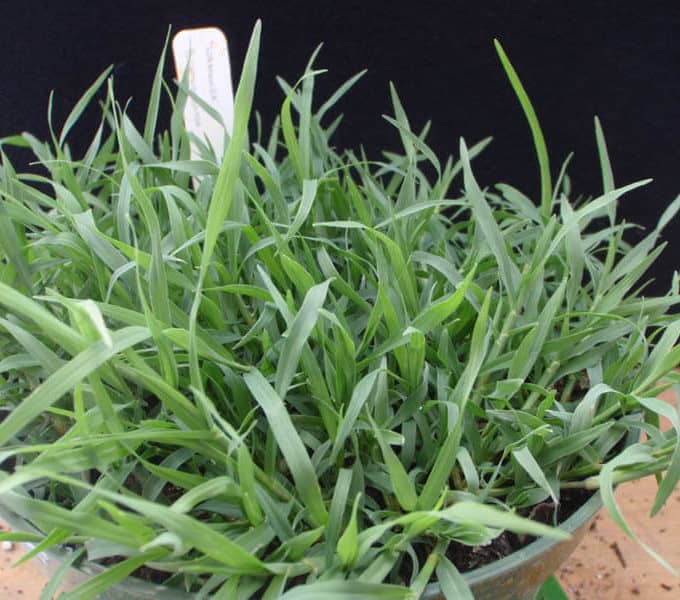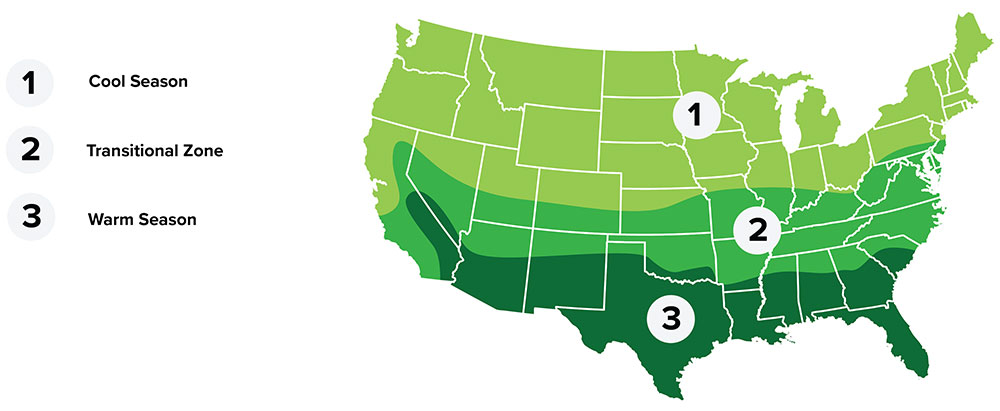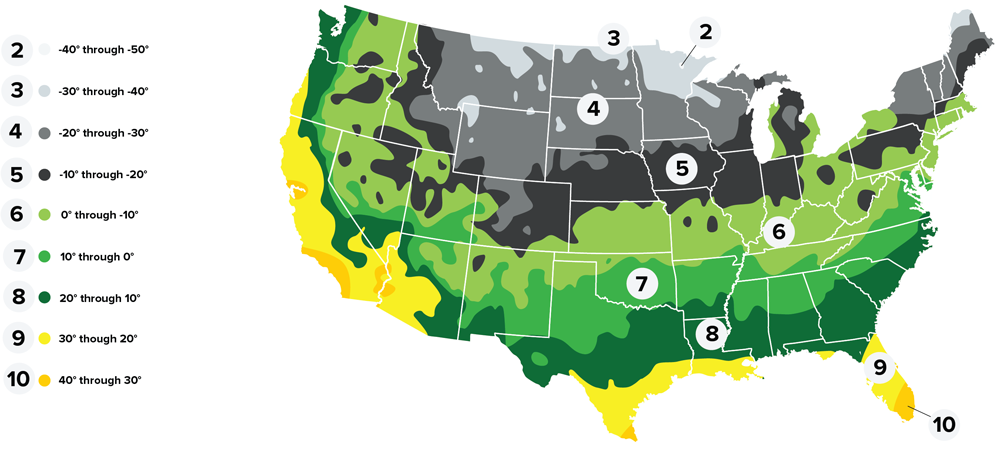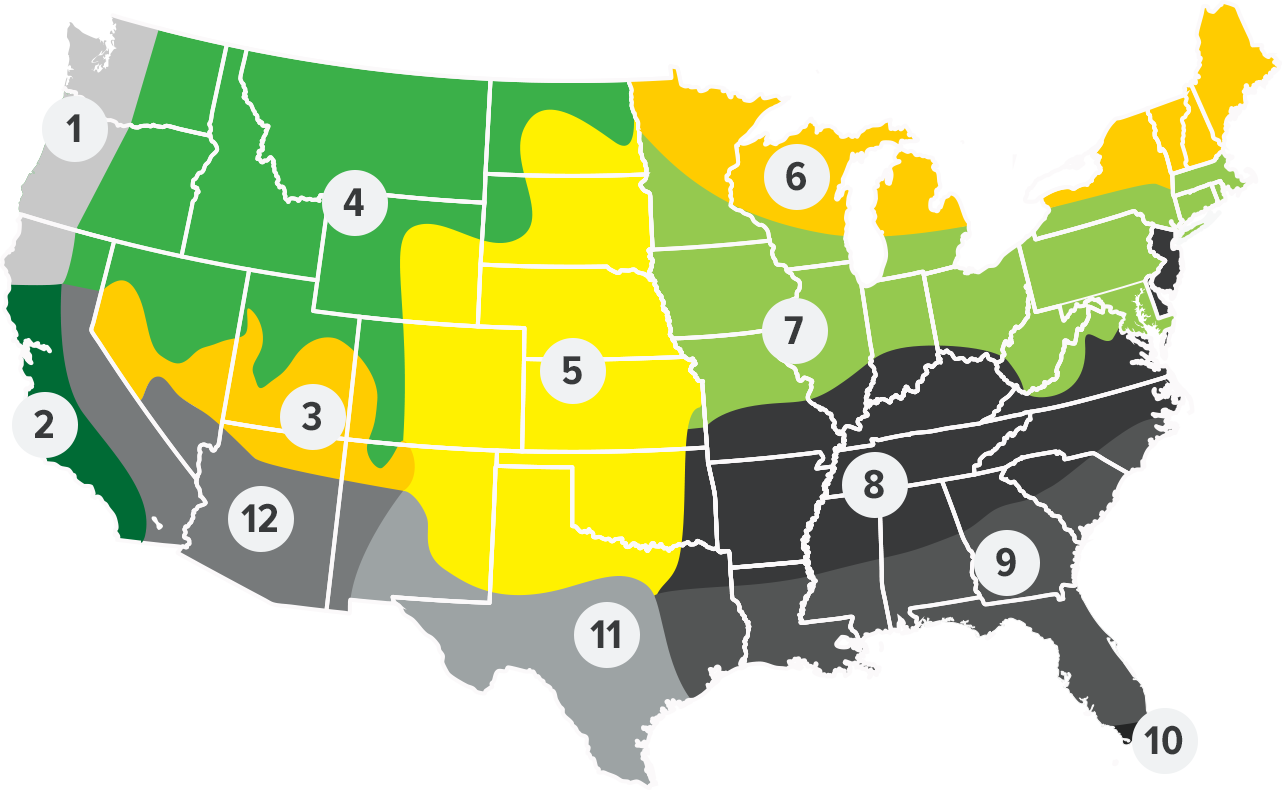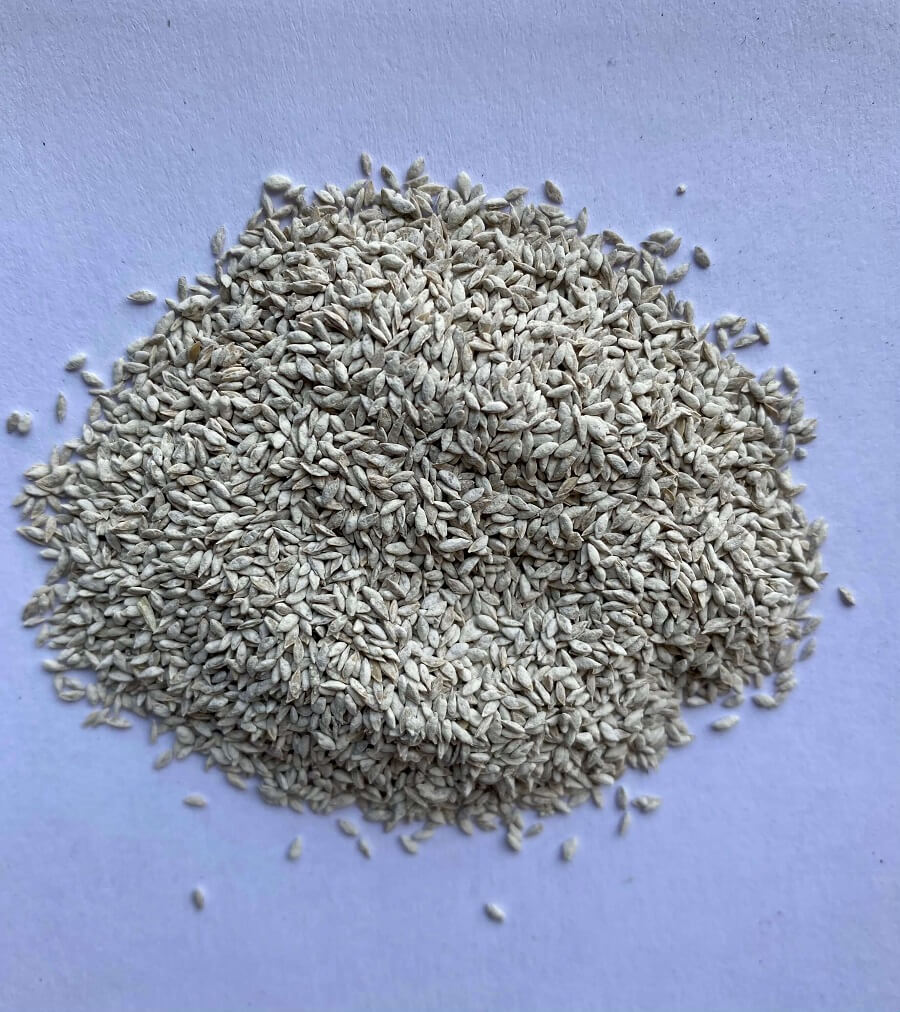
WRANGLER BERMUDAGRASS – SOLD OUT FOR 2025
Sold out for 2025
Summary
Wrangler is sold out for the 2025 season. Check out Stampede Plus, Stampede Blend, and Stabilizer for great alternatives!
Wrangler bermudagrass is an improved, seeded forage-type bermudagrass with superior cold tolerance. Developed by Johnston Seed Company using breeding lines licensed by Oklahoma State University. Wrangler is the most widely planted, true cold tolerant seeded forage bermudagrass in the United States. Released in 1999, Wrangler has proven itself as one of the most cold hardy bermudagrasses available for pasture, hay and conservation uses. Wrangler has survived near Kansas City, MO for more than 10 years without substantial winter kill. It has excellent cold hardiness, drought tolerance, heat tolerance, disease resistance and grazing resistance.
Wrangler has early spring green-up, a medium textured leaf and stem, a density greater than the F1 hybrids but less than that of Arizona common and a fast rate of regrowth. The medium leaf and stem characteristics of Wrangler bermudagrass provide the right amount of consistency in the hay to make good quality square bales with an exceptional leaf to stem ratio.
Wrangler bermudagrass is the main component of our superior forage blends Stampede Plus and Stampede Blend bermudagrass.
Plant Characteristics
Taxonomy
Zone
- USDA Plant Hardiness Zones
- 6, 7, 8, 9, 10
- Temperature Zone
- Warm, Transitional
Plant Characteristics
- Height
- 10" - 16"
- Bloom Period
- Mid-Spring
- Leaf Color
- Green
- Growing Cycle
- Perennial
- Growth Habit
- Rhizomatous
- Sun Requirement
- Full Sun
Plant Information
- Planting Season
- Summer - Late-Spring
- Plant Depth
- 0.25"
- Minimum Soil Temp for Germination
- 65° F
- Establishment
- Easy
Seed Information
- Seed Treatment
- Coated
- Kingdom
- PLANTAE
- Subkingdom
- TRACHEOBIONTA
- Super Division
- SPERMATOPHYTA
- Division
- MAGNOLIOPHYTA
- Class
- LILIOPSIDA
- Subclass
- COMMELINIDAE
- Order
- CYPERALES
- Family
- POACEAE
- Genus
- CYNODON
- Species
- CYNODON DACTYLON
Coverage Area & Available Sizes
How to Use & Apply
Wrangler and Stampede PLUS bermudagrass seed can be planted during spring and summer months after the soil temperature has reached about 65F. Spring plantings are usually best because of the generally higher rainfall and better growing conditions compared to summer. Summer plantings that can be irrigated are entirely feasible. The cutoff date for planting in the summer depends upon geographic location. As a general rule, the further north you plant the earlier the cutoff date. The Wrangler is a very cold tolerant bermudagrass but it has to have time to develop and establish prior to frostin the fall.
Applications
Wrangler bermudagrass is an excellent source of high quality forage in both haying and grazing systems. Wrangler’s superior stress tolerance package allows it to be a consistent forage producer in a wide geographic and climatic region.
Wrangler bermudagrass is an excellent source of high quality forage in both haying and grazing systems. Wrangler’s superior stress tolerance package allows it to be a consistent forage producer in a wide geographic and climatic region.
Wrangler bermudagrass develops both stolons and rhizomes which provide excellent soil stabilizing characteristics. Wrangler has been used extensively in waterways, pond dams, streambanks, and other conservation applications.
Wrangler has also been used as a utility turf. It has good density, dark green color, but coarser stems than Arizona common, therefore easier to mow with rotary-bladed mowers. Long-term persistence and cold hardiness make it a low maintenance utility turf for many applications such as roadsides, right-of-ways, commercial lots, and embankments.









